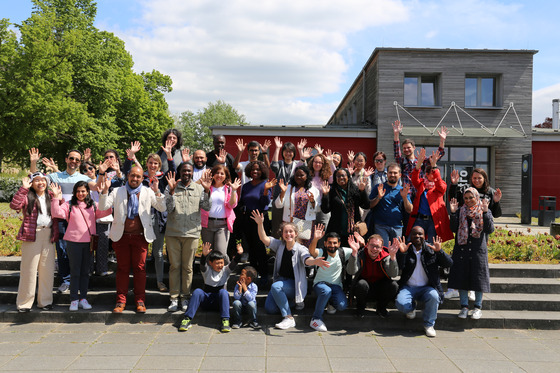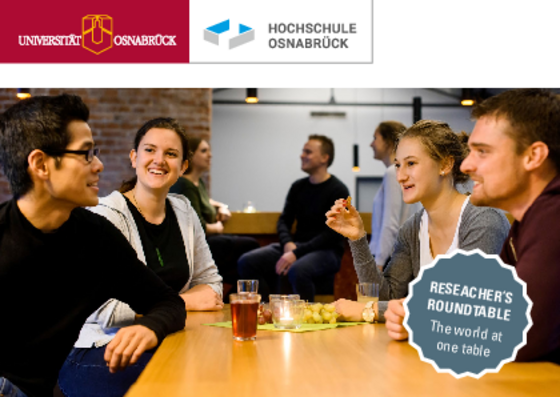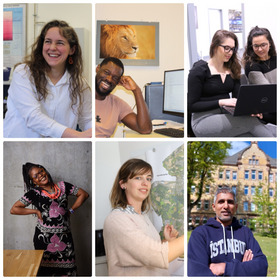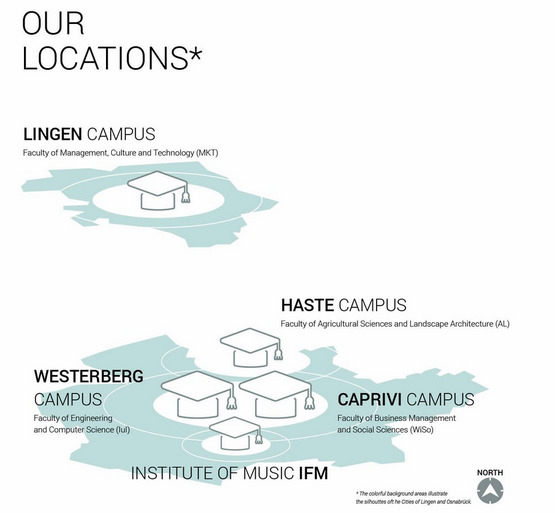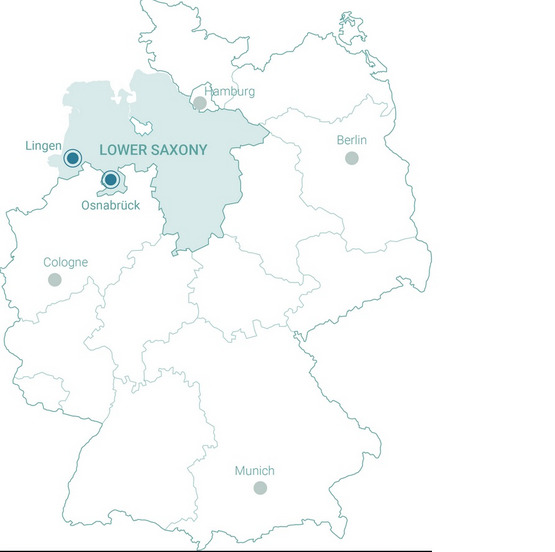Research, Work and Teach
at Osnabrück University of Applied Sciences
The Welcome Center
As part of the Center for International Mobility (CIM), the Welcome Center addresses international scientists who would like to teach or conduct research at Osnabrück University of Applied Sciences for at least four weeks. At the Welcome Center international doctoral candidates and researchers can get support and advice on all organizational questions related to their prospective stay in Germany and benefit from the close cooperation of the Welcome Center with various institutions of Osnabrück University of Applied Sciences and external partners. Being part of the project "CarLa” the Welcome Center also aims to support young scientist who are interested in becoming a professor at a University of Applied Sciences in Germany.
The Welcome Center of Osnabrück University of Applied Sciences is member of the network "EURAXESS - researchers in motion", a pan-European initiative supported by the EU Commission that promotes the international mobility of researchers.
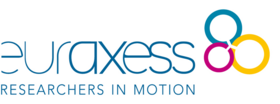
International Staff Week 2024
The Welcome Center organizes an International Staff Week every two years on the topic of “Research at Osnabrück University of Applied Sciences”. Reviews of the past Staff Weeks from 2018 and 2024 can be found here. The next Staff Week is expected to take place in 2026 and will be announced in spring 2026 via IMOTION staffmobility.eu. We look forward to your participation!
Researcher's Roundtable
Testimonials
What is is like to be an international researcher at Osnabrück University of Applied Sciences? Click here to review testimonials.
Research, Work and Teach at Osnabrück UAS
We value the exchange of ideas among academic colleagues, doctoral students, and staff just as highly as the exchange of students. All are key to building international relationships and developing intercultural competencies at home and abroad.
Below you will learn more about how you can research, work and/or teach with us at Osnabrück University of Applied Sciences (UAS).
Why choose Osnabrück?
With a student population of around 14,000, Osnabrück University of Applied Sciences is the largest and most research-intensive university of applied sciences in Lower Saxony. The university’s four faculties and its Institute of Music offer more than 100 degree programs at the Bachelor and Master level, as well as supervising over 100 cooperative doctorates. The Osnabrück site is home to the faculties of Agricultural Sciences and Landscape Architecture, Engineering and Computer Science and Business Management and Social Sciences, as well as the Institute of Music. The Faculty of Management, Culture and Technology is located on the Lingen Campus.
Equipped with modern infrastructure at its sites in Osnabrück and Lingen, Osnabrück University of Applied Sciences offers an appealing campus atmosphere and a pleasant working environment. As an employer, the university supports the reconciliation of family and working life, offers professional development opportunities, and attaches great importance to diversity and gender equality. Like many other universities of applied sciences, Osnabrück University of Applied Sciences is actively engaged in internationalization. To this end, it maintains contacts with over 200 partner universities worldwide, and is a member of the UAS7 alliance. Seven leading universities of applied sciences in Germany collaborate in this consortium, jointly managing representations in New York and Sao Paulo, among other things. Thanks to its strength in research, Osnabrück University of Applied Sciences is also a member of the European University Association (EUA).
Osnabrück University of Applied Sciences offers a wide range of opportunities for research, and the growing number of research projects funded in Europe and Germany is a testament to the major importance of our university as a driver of innovation, particularly within the local regions of Osnabrück and Lingen. The four research priorities at Osnabrück University of Applied Sciences include:
Pioneering agricultural system technologies
Energy systems, management, and law
Innovative materials and material technologies
Healthcare services research, care management, and informatics in healthcare
In general, teaching is structured as follows:
| Semester | Classes begin | Exam period begins | End of Semester |
| Winter Semester | Calendar Week 39 / End of Sept. | Saturday of Calendar Week 2 / Early Jan. | Calendar Week 5 / End of Jan. |
| Summer Semester | Calendar Week 10 / Early March | Saturday of Calendar Week 24 / Mid-June | Calendar Week 27 / Early July |
The exact dates for each semester can be found on our website.
Osnabrück is a city with a population of more than 150,000, located in northwest Germany. The roughly 30,000 students enrolled at Osnabrück University and Osnabrück University of Applied Sciences attract young people to the city. With its medieval center and carefully restored half-timbered houses, the city has its own distinctive atmosphere. What is more, modern arcades and pedestrian zones appeal to strollers and shoppers alike.
The colorful and diverse neighborhoods, a high-quality and varied cultural program, and the wide range of special events make Osnabrück a lively and attractive place. Thanks to its proximity to the Teutoburg Forest and the Wiehen Hills, the city also offers outdoor adventures for nature lovers. Osnabrück’s location makes it easy to reach several major cities, including Hamburg, Amsterdam, Berlin, and Cologne.
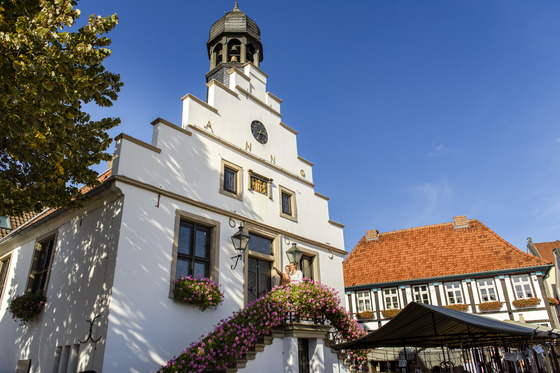
Lingen is a town in the southern part of the Emsland District and in western Lower Saxony, close to the border with the Netherlands. The town, located on the River Ems, has a population of more than 57,000, making it the largest town in the Emsland region. Featuring a wide range of sports and leisure activities and a historic old town, Lingen offers plenty of variety and a high quality of life.
Those arriving in Lingen by train will find themselves standing right next to the listed locomotive sheds of Osnabrück University of Applied Sciences. A former railway repair shop where steam locomotives were once repaired and maintained now serves as a place of learning, teaching, and research. The Lingen Campus is home to the Faculty of Management, Culture and Technology (MKT). Its technically sophisticated equipment is the basis for application-oriented studies. The canteen and the library are directly on campus.
Contact Welcome Center
Contact Welcome Center
For general question and as your first point of contact, please contact the Welcome Center.
International Staff Exchange
Osnabrück University of Applied Sciences also welcomes and promotes the exchange of employees from various fields of work at our partner universities. Two opportunities are available for this purpose:
Job shadowing is possible between colleagues who are responsible for comparable fields of work. For this, both the supervision capacity at the University of Applied Sciences Osnabrück and the financing, for example through the home university, must be secured.
Every two years, the Center for International Mobility coordinates the International Staff Week with cooperating partner universities. This exchange with a fixed program promotes networking between the partners and offers the staff of various departments the chance to experience first-hand how work is done in the other country. The next staff week will take place in June 2024 and focus on "Research at Osnabrück University of Applied Sciences".
Contact
Contacts International Faculty Offices
| IFO Faculty of Agricultural Sciences and Landscape Architecture | Lea Klöppel | |
| IFO Faculty of Engineering and Computer Science | Elke Turner | |
| IFO Faculty of Management, Culture and Technology | Katharina Freitag | |
| IFO Faculty of Business Management and Social Sciences | Sabine Kohlsaat |
|
| IFO Institute of Music | Martin Löcherbach |
